Filter by
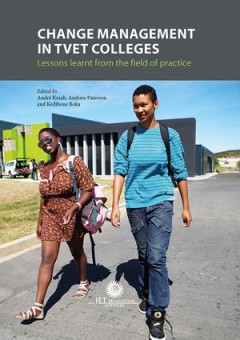
Change management in TVET colleges : Lessons Learnt from the Field of Practice
The Technical and Vocational Education and Training (TVET) college environment is marked by increasingly stark juxtapositions between what needs to be achieved in the post-school education sector and the increasing difficulty of current conditions. The ‘triple challenge’ of poverty, inequality and unemployment weighs heavily on the social, political and economic fabric of the country and ex…
- Edition
- -
- ISBN/ISSN
- 9781928331346
- Collation
- -
- Series Title
- -
- Call Number
- 370 KRA c
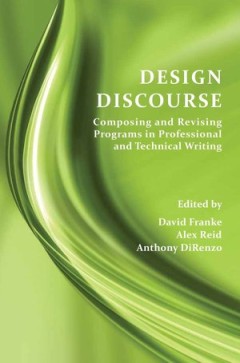
Design Discourse : Composing and Revising Programs in Professional and Techni…
Design Discourse: Composing and Revising Programs in Professional and Technical Writing, edited by David Franke, Alex Reid and Anthony DiRenzo, addresses the complexities of developing professional and technical writing programs. The essays in the collection offer reflections on efforts to bridge two cultures — what the editors characterize as the "art and science of writing" — often by add…
- Edition
- -
- ISBN/ISSN
- 9781602351677
- Collation
- -
- Series Title
- -
- Call Number
- 400 DES
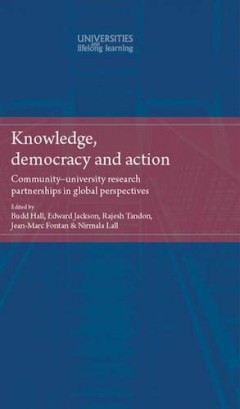
Knowledge, democracy and action : Community–university research partnership…
Knowledge, democracy and action is based on a three-year international comparative study undertaken by the Global Alliance on Community Based Research and supported by the UNESCO Chair in Community Based Research and Social Responsibility in Higher Education. It provides evidence from twenty case studies around the world on the power and potential of community and higher education based scholar…
- Edition
- -
- ISBN/ISSN
- 9780719089787
- Collation
- -
- Series Title
- -
- Call Number
- 370 KNO
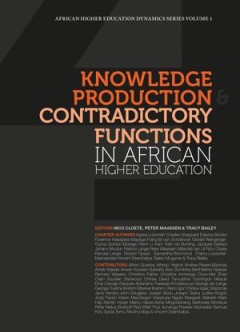
Knowledge Production and Contradictory Functions in African Higher Education
"This volume brings together excellent scholarship and innovative policy discussion to demonstrate the essential role of higher education in the development of Africa and of the world at large. Based on deep knowledge of the university system in several African countries, this book will reshape the debate on development in the global information economy for years to come. It should be mandatory…
- Edition
- -
- ISBN/ISSN
- 9781920677855
- Collation
- -
- Series Title
- -
- Call Number
- 370 KNO
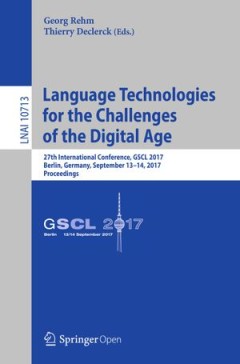
Language Technologies for the Challenges of the Digital Age : 27th Internatio…
This open access volume constitutes the refereed proceedings of the 27th biennial conference of the German Society for Computational Linguistics and Language Technology, GSCL 2017, held in Berlin, Germany, in September 2017, which focused on language technologies for the digital age. The 16 full papers and 10 short papers included in the proceedings were carefully selected from 36 submissions. …
- Edition
- -
- ISBN/ISSN
- 9784431543275
- Collation
- XIII, 310 halaman
- Series Title
- Lecture Notes in Computer Science
- Call Number
- 400 LAN

Cultural and linguistic minorities in the Russian Federation and the European…
This is the first comprehensive volume to compare the sociolinguistic situations of minorities in Russia and in Western Europe. As such, it provides insight into language policies, the ethnolinguistic vitality and the struggle for reversal of language shift, language revitalization and empowerment of minorities in Russia and the European Union. The volume shows that, even though largely unknown…
- Edition
- 1
- ISBN/ISSN
- 9783319104553
- Collation
- XIX, 340
- Series Title
- Multilingual Education
- Call Number
- 370
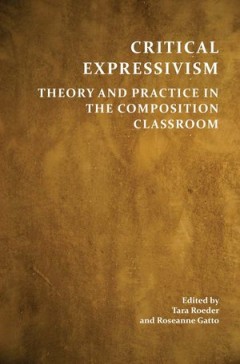
Critical Expressivism : Theory and Practice in the Composition Classroom
Critical Expressivism is an ambitious attempt to re-appropriate intellectual territory that has more often been charted by its detractors than by its proponents. Indeed, as Peter Elbow observes in his contribution to this volume, "As far as I can tell, the term 'expressivist' was coined and used only by people who wanted a word for people they disapproved of and wanted to discredit." The editor…
- Edition
- -
- ISBN/ISSN
- 978-1-64215-057-5
- Collation
- -
- Series Title
- -
- Call Number
- 370 CRI
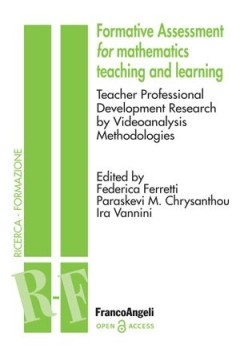
Formative Assessment for mathematics teaching and learning : Teacher Professi…
This book aims at describing pathways and achievements of the LLP Comenius Project “FAMT&L – Formative Assessment in mathematics for teaching and learning”. The main purpose of this research project was to encourage the use of formative assessment in the teaching-learning process carried out by mathematics teachers in lower secondary school. Through the voices of the several actors involv…
- Edition
- -
- ISBN/ISSN
- 9788891774637
- Collation
- -
- Series Title
- -
- Call Number
- 370 FER f

The Dream Is Over : The Crisis of Clark Kerr’s California Idea of Higher Ed…
The Dream Is Over tells the extraordinary story of the 1960 Master Plan for Higher Education in California, created by visionary University of California President Clark Kerr and his contemporaries. The Master Plan’s equality of opportunity policy brought college within reach of millions of American families for the first time and fashioned the world’s leading system of public research univ…
- Edition
- -
- ISBN/ISSN
- -
- Collation
- -
- Series Title
- -
- Call Number
- 370 MAR d
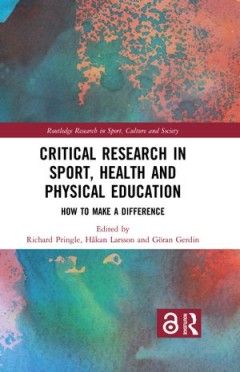
Critical Research in Sport, Health and Physical Education : How to Make a Dif…
Within the overlapping fields of the sociology of sport, physical education and health education, the use of critical theories and the critical research paradigm has grown in scope. Yet what social impact has this research had?This book considers the capacity of critical research and associated social theory to play an active role in challenging social injustices or at least in ‘making a diff…
- Edition
- -
- ISBN/ISSN
- 9781351333863
- Collation
- 270 halaman
- Series Title
- -
- Call Number
- 370 CRI
 Computer Science, Information & General Works
Computer Science, Information & General Works  Philosophy & Psychology
Philosophy & Psychology  Religion
Religion  Social Sciences
Social Sciences  Language
Language  Pure Science
Pure Science  Applied Sciences
Applied Sciences  Art & Recreation
Art & Recreation  Literature
Literature  History & Geography
History & Geography